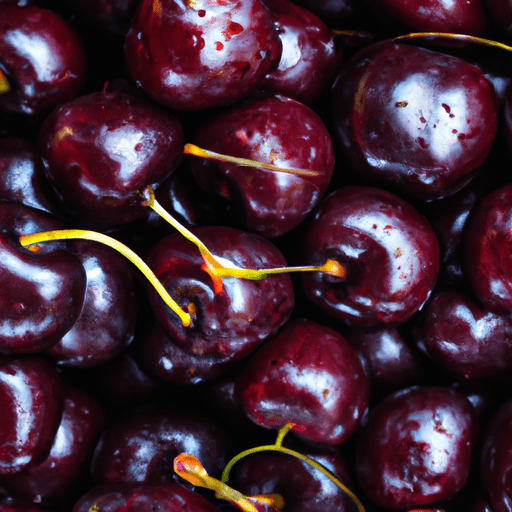The Delightful Delicacy of Black Cherries
Black cherries, also known as wild cherries, are a delightful fruit that not only tantalize the taste buds but also offer a plethora of health benefits. These beautiful dark berries are a favorite in the culinary world, adding a burst of vibrant color and a sweet-tart flavor to a variety of dishes. Join us as we explore the tantalizing taste, creative uses, nutritional value, and fascinating history of black cherries.
An Explosion of Flavor
Black cherries offer a unique balance of sweetness and tartness that makes them ideal for both sweet and savory dishes. When ripe, their decadent, juicy flesh bursts with an intense cherry flavor that can be both refreshing and indulgent. The contrasting sweet and tangy notes of black cherries make them a popular choice for jams, preserves, pies, sauces, and cocktails.
Culinary Versatility
Black cherries are remarkably versatile and can be enjoyed in a diverse range of culinary preparations. Their distinctive taste pairs exceptionally well with rich, creamy desserts like black forest cake, cherry clafoutis, and cherry cheesecake. Furthermore, their deep and complex flavor profile adds depth to savory dishes like grilled duck breast with cherry reduction or a vibrant spinach salad with black cherries, goat cheese, and candied pecans.
The Nutritional Powerhouse
These delicious dark gems not only tantalize our taste buds but also supply our bodies with essential nutrients. Black cherries are a natural source of antioxidants, particularly anthocyanins, which give them their beautiful dark hue. These antioxidants help protect our cells from oxidative stress and have been linked to various health benefits, including reduced inflammation and improved heart health. Black cherries are also rich in vitamin C, potassium, and dietary fiber, making them a nutritious addition to a well-balanced diet.
A Historical Perspective
Black cherries have a rich history dating back thousands of years. Native to Europe, Asia, and parts of North America, cherries have been an integral part of human consumption for centuries. Ancient Romans and Greeks relished these luscious fruits and introduced them to various regions through their conquests. In the 1600s, Spanish settlers brought cherry trees to North America, and the cultivation of cherries spread rapidly across the continent.
Fascinating Facts
Did you know that black cherries have been embraced in traditional medicine for their potential health benefits? They have been used to alleviate symptoms of arthritis, gout, and even insomnia. Furthermore, the natural compound found in black cherry juice, anthocyanin, is believed to aid in post-workout muscle recovery and reduce exercise-induced muscle soreness.
Conclusion
Black cherries, with their captivating flavor, culinary versatility, and impressive health benefits, are a true delight. Whether you’re enjoying them in a decadent dessert, using them to add a unique twist to a savory dish, or simply savoring their natural goodness, black cherries are a treasure to behold. So, the next time you come across these dark beauties, embrace their one-of-a-kind taste and reap the nutritional rewards they offer.
Origin of Black Cherries:
- Black cherries (Prunus serotina) are native to North America. They are commonly found in the eastern parts of the United States and Canada.
Common Uses of Black Cherries:
- Black cherries are commonly used in various culinary applications, including desserts like pies, tarts, and cakes.
- They are also used to flavor beverages such as cocktails, syrups, and liqueurs.
- Black cherries can be made into preserves, jams, and jellies.
- They can also be used in savory dishes, pairing well with ingredients like pork, game meats, and cheese.
Nutritional Benefits of Black Cherries:
- Black cherries are low in calories and fat, making them a nutritious addition to a balanced diet.
- They are a good source of dietary fiber, which promotes healthy digestion.
- Black cherries are rich in antioxidants, particularly anthocyanins, which help protect cells from damage caused by harmful free radicals.
- They contain several vitamins and minerals, including vitamin C, potassium, and manganese.
Unique Properties and Historical Significance:
- Black cherries have a deep red to black color when ripe, with a juicy flesh and a distinctive sweet-tart flavor.
- The wood of the black cherry tree has been historically used for furniture, cabinets, and veneers due to its beautiful grain and durability.
- Native Americans have long used black cherries for medicinal purposes, including treating respiratory ailments and soothing inflammation.
- Black cherry bark has been used to make traditional herbal infusions, including cough syrups and teas.
- The black cherry tree is often cultivated for its beautiful white flowers, which attract pollinators like bees and butterflies.




Use the share button below if you liked it.
It makes me smile, when I see it.